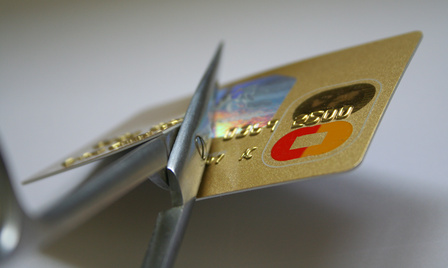For most of us it’s hard to imagine life without credit cards. We have become so used to our flexible friends that to give up using them is like a smoker giving up cigarettes.
And yet, that’s precisely what you must do if you enter into an Individual Voluntary Arrangement (IVA) or opt for Bankruptcy. To be accepted into an IVA you must commit to giving up all credit cards and store cards. You must stick to this commitment for the duration of the IVA or your supervisor will have no option but to fail your arrangement. Any limited use of credit whatsoever must have the prior authorization of the Supervisor of the IVA and that implies the agreement of the creditors.
The question then arises: if it is mandatory to cease using credit such as credit cards and store cards in an IVA, why not do it on a voluntary basis before our personal finances deteriorate to the point where we have no choice but to seek a formal solution to our insolvency? Well, it’s a little bit like giving up cigarettes and the truth may well be that many of us are addicted to using credit in this way. The sad thing is that the current young generation have never experienced a time when credit cards were not around. Older people do have that memory and many of them regard those times when cash was king as the good old days.

Entering an IVA makes further disciplinary demands on our lifestyle and spending habits. We have to stick to a household budget. We have to curb any and all tendencies to make impulse or impetuous purchases. Retail therapy is really a no-no. However, you cannot enter into an IVA unless you are insolvent. How do you know if you are insolvent or not?
The key question to ask is whether you can service all of your debts in accordance with the terms and conditions of the contracts you have entered into. You may ask – what contracts? Do you remember when you applied for that credit card or when you asked your friendly bank manager to increase the size of your overdraft? Did you complete an application form and sign it? That was the first step in entering into a contract with the card provider or your bank. It might be easier to remember when you took out your mortgage or entered into a HP agreement when you bought your car. These are also contracts with terms and conditions, all governed by law. All of your liabilities are likely to be governed by contracts between you and your creditors and be subject to terms and conditions.
Even if you never missed making a payment on your credit cards, you might still be insolvent and you need to look at the whole picture. Have you other liabilities such as unsecured loans, overdrafts, mortgage or HP? Are repayments of all those up to date and not in arrears? Even if they are fully up to date, are you paying off the full balance of all of your credit cards every month? Or, are you just making the minimum payments? Are your credit card debts increasing month by month?
When you have the answer to all of these questions you will be much better placed to determine if you are insolvent or not. The next step is to compile an income and expenditure statement which should include all of your sources of income and all your regular outgoings. If you are married or co-habiting you need to consider the income and expenditure of your partner. If you have children, you must allow for their living expenses too.
The good news is that you don’t have to do all this work yourself. Consulting with an Insolvency Practitioner, otherwise known as an IP, is often the best initial course of action. A reputable IP will look at all of your financial circumstances (and not just your credit card bills) and will determine very quickly if you are insolvent or not. You should incur no costs in obtaining this advice. If you are in fact insolvent, your IP will go on to advise you on all of the options open to you including entering into an Individual Voluntary Arrangement. That is not the only option. You might consider entering into a Debt Management Plan or even petitioning for your own Bankruptcy. There may be other options available as well. You can choose the best option for yourself in the light of the advice provided by the IP. And there is life after credit cards or, if you like, life after debt.